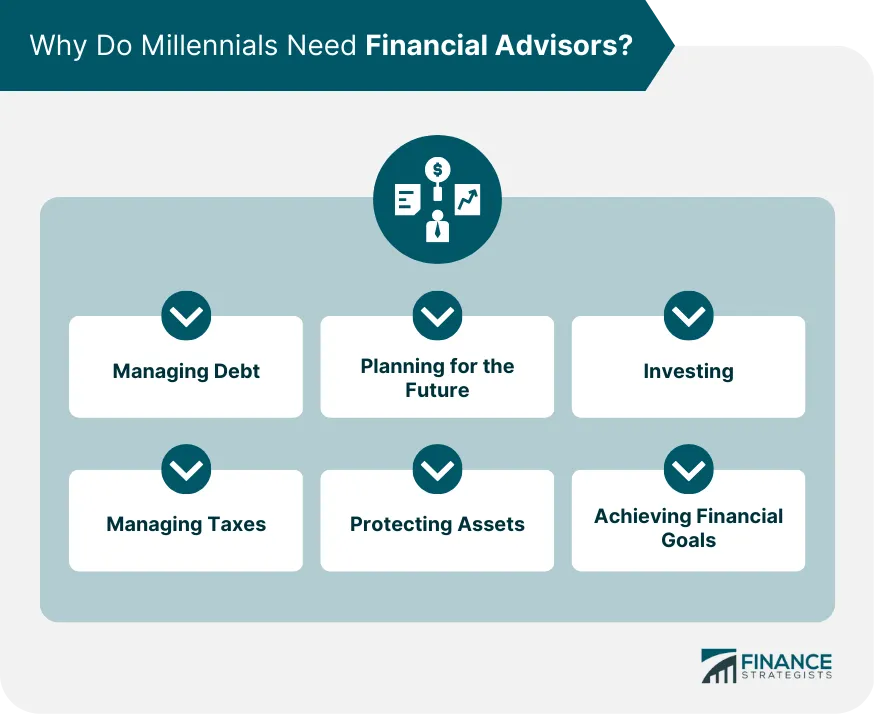Introduction
You may be surprised that almost half of all Americans have less than $10,000 put away for retirement. It is an eye-opener that reveals how important financial planning is in one’s life, particularly among the youth. While our grandparents had this enviable position called pensions and predictable job security, how things have changed. The millennial generation faces record-high student loan debt burdens, combined with an unpredictable labour market. This makes retirement saving more critical than ever. Thankfully, the earlier you start, the better. By riding on the power of compound interest, you can set up a solid financial foundation and enjoy stress-free retirement. Let’s explore the Strategies for Millennials and Gen Z to help you achieve your retirement goals.

Why Retirement Planning Matters for Millennials and Gen Z
Millennials and the generation that follows them, Gen Z, face a financial terrain quite different from their forebears. For many, student loan debt has become a heavy burden, drastically impacting the availability of funds that may otherwise be diverted toward savings. Added to this is the fact that wages remain flat compared with growing expenses related to living, further exacerbating the difficulty of saving for retirement.
As the traditional concept of stable jobs and pensions slowly disappears and the gig economy contributes to uncertain income streams, it is all the more necessary that the young generation do more about retirement planning.
There are several reasons why saving early matters. First, compound interest enables small savings invested consistently to grow exponentially over time. Strategies for Millennials and Gen Z , Second, it develops the habit of saving early and creates financial discipline—a very useful virtue throughout one’s life. Lastly, starting early drastically increases your chances of securing a good retirement plan so you can enjoy your golden years without any stress.
How to Get Started: Retirement Planning Strategies
Knowing and understanding your personal situation is the first step to a sound and secure financial future. It starts with monitoring income and expenses, thereby painting a clear picture of your spending habits. Budgeting may be a bore, but it proves to be an effective means of identifying areas where you can cut down spending to apply more funds toward your savings.
Now that you know your income and expenses, you can start setting your retirement goals. Think about the kind of lifestyle you want to lead during retirement. Are you going to travel worldwide, downsize, or work part-time? All these are drivers of how much you’ll be saving. Estimate how much you should save using online calculators, given individual factors such as age, desired income, and how long one can expect to live.
First, understand your financial condition and your retirement goals. Then, consider retirement savings options. For most, checking employer-sponsored plans, particularly 401(k) plans, is a good starting point. Many employers will match, which is free money. Take advantage of the opportunities as fully as possible. Strategies for Millennials and Gen Z.
IRAs offer more flexibility. A traditional IRA allows one to deduct its contribution from one’s taxable income, while a Roth IRA is tax-free on withdrawals during retirement. Contribution limits are also different for both kinds of IRAs.
Besides these more conventional options, one can consider other investments like stocks, bonds, or mutual funds. However, investing can get very complicated, and it is always highly advisable to get the advice of a financial advisor who will enable one to make informed decisions.
Maximize the amount you are saving for retirement by setting up automatic transfers. This means creating an automatic account transfer from your checking account to your retirement savings account. This automatically ensures a constant contribution without the pain of manually transferring your hard-earned money.
Over time, with the rise in income, so should your retirement contributions. With this disciplined attitude, you will save loads over a long period.
Finally, retirement savings teach you to live below your means. Draw a demarcation between needs and wants, reduce costs where possible, and avoid the lifestyle inflation trap. Every dollar saved helps you get closer to retirement.

Millennials and Investing in the Future: A Guide for Millennials and Gen Z
Investing can be overwhelming, but knowing a few key concepts can help any investor make good decisions. First, though, it’s essential to determine your risk tolerance. Your risk tolerance refers to your ability to handle changes or fluctuations in the value of your investments. Are you comfortable with the market going up and down, or are you conservative? Knowing and understanding your risk tolerance allows you to choose suitable investment options.
Another critical investment principle is diversification. It means putting one’s money in a diversified portfolio so it is not at the whim of any single market. Putting your money into stocks, bonds, and cash can help reduce the risk involved. When one type of investment has a subpar performance, others may balance the losses. This balanced approach may help protect your portfolio from significant downturns.
As a young investor, you have the advantage of having a long investment horizon. That means you’ll be able to ride out market fluctuations and benefit from the power of compounding interest over time. While short-term volatility in the market can be a bit unsettling, it is very important to take a long-term perspective on it.
First, low-cost index funds usually appeal to new investors. Such funds track a given index in the market, providing exposure to broad markets at lower costs. Index funds are diversified and expertly managed without much research effort.
One will find that Strategies for Millennials and Gen Z face different problems when it comes to retirement planning. Delayed entry into the workforce: Student loans, economic downturns, and a prolonged job search could delay retirement savings. Higher costs of living: Housing, healthcare, and education have become very expensive now compared to previous generations, thus leaving little disposable income for savings. Longevity: The expectation of longer lives means you’ll probably need more savings to maintain your lifestyle in retirement.
Diminishing traditional pensions: Fewer and fewer employers now offer a pension, shifting the burden of retirement savings to the individual.
Seven Key Strategies for a Secure Retirement
1. Get Started Early and Stick with It
Power of compounding: The earlier you start your savings process, the longer your money will grow compounded interest.
Automate your savings: Set up an automatic transfer from your paycheck directly into your retirement accounts—it’s painless.
Increase contributions over time: The higher your income, the more you should contribute to your retirement.
2. Max Out Employer Matches
Free Money: Take full advantage of any 401(k) match your employer offers. This is free money.
Understand the Match: To maximize the employer match properly, be sure to understand how it works—that is, dollar-for-dollar up to a certain percentage.
3. Diversify Your Investments
Diversify: Do not put all your eggs in one basket. Ensure that you diversify your risk and expected return by creating a well-balanced portfolio of stocks, bonds, and other assets.
Consider investments in target-date funds: These are rebalanced and realigned automatically according to your retirement date.
Rebalancing: Rebalancing entails periodically checking a portfolio to ensure that risk exposure levels are still within the tolerance level and goals set.
4. Tax-advantaged accounts—maximize them.
401(k)s: Many employers offer these with tax benefits and employer matches.
IRAs: Individual Retirement Accounts provide flexibility in choices of investments.
Roth IRAs: Contributions are with after-tax dollars, and the qualified withdrawals are tax-free.
5. Build an Emergency Fund
Protect your savings by having cash available to fall back on for unexpected expenses. That way, you won’t end up going into your retirement savings.
You can aim to save 3-6 months’ worth of living expenses so that it will help you during bad times.
6. Educate Yourself About Finances
Basic financial knowledge: Know the essentials of budgeting, investing, and managing debt.
Free online resources: Web-based courses, articles, and calculators can prove to be very helpful.
Consult a financial advisor: If you desire custom advice, seek the help of a qualified financial advisor. This was one of the Strategies for Millennials and Gen Z.
7. Plan for Healthcare Expenses
Health Savings Accounts: Fund a health savings account and save money towards approved medical costs.
Medicare: Educate yourself on Medicare and how to supplement it with additional coverage.
Long-term care: Consider any long-term care needs that could arise and how you might insure for them.This was one of the Strategies for Millennials and Gen Z.
8. Assessing Your Lifestyle and Retirement Goals
Lifestyle you want: Project the related costs together with your vision of how you would like to spend your time in retirement.
At what age do you want to retire?: Considering your health factors, finances, and personal factors, decide when you would want to retire.
Adjusting: Review and update your retirement plan as your life circumstances change. These are the Strategies for Millennials and Gen Z.
Conclusion
One of the best decisions anyone ever makes is to take control of their financial future. You can initiate early, be aware of your financial situation, and implement sound investment strategies to set a retirement security foundation. Remember, it’s never too early or too late to start saving. So these were the Strategies for Millennials and Gen Z.
Start planning for retirement today. Even the smallest steps count and begin to amount to a big difference. You are welcome to Beta Information for help through this journey. We are committed to empowering you toward your financial goals, from budgeting tips to investment advice.
Let us work to create a better financial tomorrow for you.
Start planning your retirement today!


